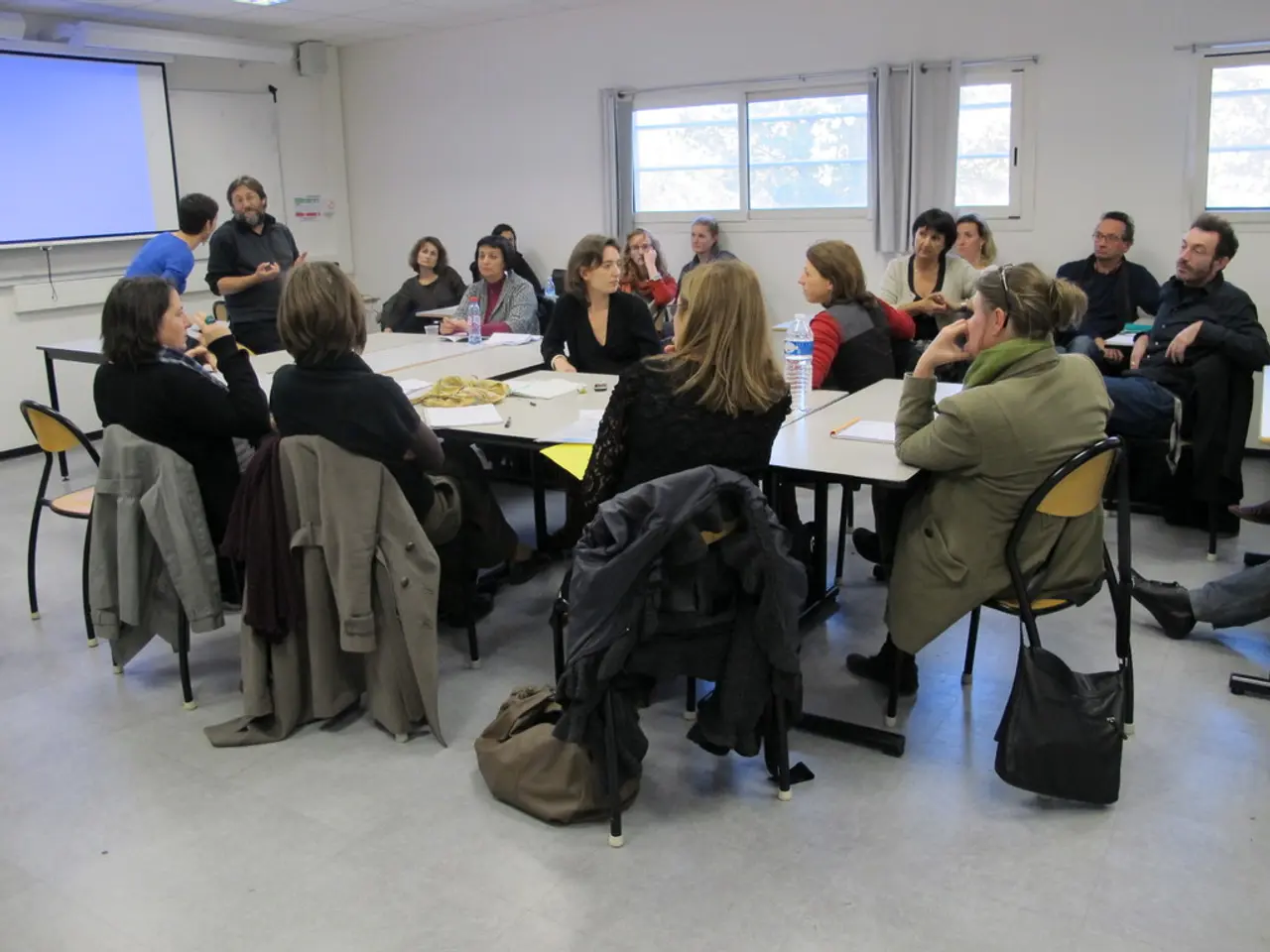Workplace effectiveness expanded through intercultural proficiency
Intercultural competence is a crucial skill in our increasingly interconnected world, encompassing knowledge of cultural differences, empathy, openness, tolerance, and the willingness for self-reflection and adaptation of one's own behavior. This skill is not just important in personal interactions, but it is particularly significant in the professional context.
The Significance of Intercultural Competence in the Professional Sphere
In today's globalised society, businesses and organisations are becoming more diverse, with teams spanning various cultures and nationalities. Intercultural competence is essential for successful teamwork in such diverse teams and international cooperation. It is a central component at universities, important for all employees in teaching, advising, or supporting students and researchers.
Moreover, globalization requires understanding of different work and communication styles. Companies that foster intercultural skills can more successfully enter international markets, increase employee satisfaction, and strengthen innovation through diversity. On the contrary, a lack of intercultural competence can lead to misunderstandings, decreased team morale, and international customer or business partner relationship issues.
The Role of Intercultural Competence in Daily Work
The Bertelsmann Foundation considers intercultural competence as the key competence of the 21st century. Constructive handling of cultural diversity is becoming increasingly important as internationalization increases. In the absence of intercultural competence, those who feel unnoticed or misunderstood due to their culture or background may have decreased motivation, engagement, and potentially seek a new job.
Fostering intercultural competence in daily work can be done through training, diverse teams, and workshops. Companies can also facilitate international assignments or business trips to help employees develop intercultural competence.
Developing Intercultural Competence
To develop and improve intercultural competence for successful collaboration in international teams, focus on building key skills that enhance cultural awareness, communication, and adaptability across cultures. These essential components include mindfulness, cognitive flexibility, tolerance for ambiguity, behavioral flexibility, cross-cultural empathy, and more.
Practical steps to enhance these skills include educating oneself, engaging in intercultural activities, gaining experience abroad or in diverse environments, and taking intercultural training or classes. When managing or collaborating in international teams, practical approaches include frequent, structured communication, prioritising inclusiveness, using project management tools, adapting communication and decision-making, and building trust through curiosity and perspective-taking.
By combining these cognitive, emotional, and behavioral skills with practical exercises and workplace strategies, individuals and teams can foster trust, enhance creativity, and achieve more effective and harmonious global collaboration. Intercultural competence is a key qualification for handling cultural differences openly, sensitively, and valuably, contributing to good collaboration that thrives on mutual respect.
[1] Adapted from Mercer University (2021). Intercultural Competence: A Guide for Professionals
[2] Adapted from Culture Smart! (2021). Communication in the Workplace
[3] Adapted from GoAbroad (2021). How to Develop Intercultural Competence
[4] Adapted from Cultural Intelligence Centre (2021). The Four Dimensions of Cultural Intelligence
[5] Adapted from Forbes (2020). How to Build a Culture of Cross-Cultural Competence
- To navigate the globalized workforce effectively, a strong foundation in career development and skills training is essential, accompanied by a dedication to intercultural competence.
- With the rise of technology and data-and-cloud computing, how we manage and analyze data can greatly impact both personal and professional success.
- Investing in education-and-self-development and staying informed about financial matters is crucial for career advancement and financial stability.
- Mental health and self-care are vital components of workplace-wellness, often overlooked in the pursuit of career goals and business targets.
- To take care of one's overall health and wellness, incorporating nutrition, fitness-and-exercise, and cooking healthy meals into your lifestyle is essential.
- As our digital world evolves, the field of sports-analysis and sports-related industries are exploring the real-estate possibilities of virtual sports experiences.
- In the realm of fashion-and-beauty, the intersection of sustainability and inclusivity is increasingly important, reflecting a growing awareness of personal and social values.
- Success in the diverse workplace requires understanding that mental health and wellbeing are as important as career growth and expertise.
- In order to pave a path for personal growth, it's vital to continually develop skills and broaden your knowledge base in fields such as science, technology, and education.
- By adopting an open-minded perspective towards food-and-drink, we can embrace cultural experiences and expand the diversity of ingredients we use in cooking.
- Balancing one's career aspirations with a focus on lifestyle choices, such as hobbies, travel, and leisure activities, contributes to overall job satisfaction and well-being.
- Fostering open communication, empathy, and adaptability in both personal and professional relationships can lead to increased innovation and cooperation in the global arena.




